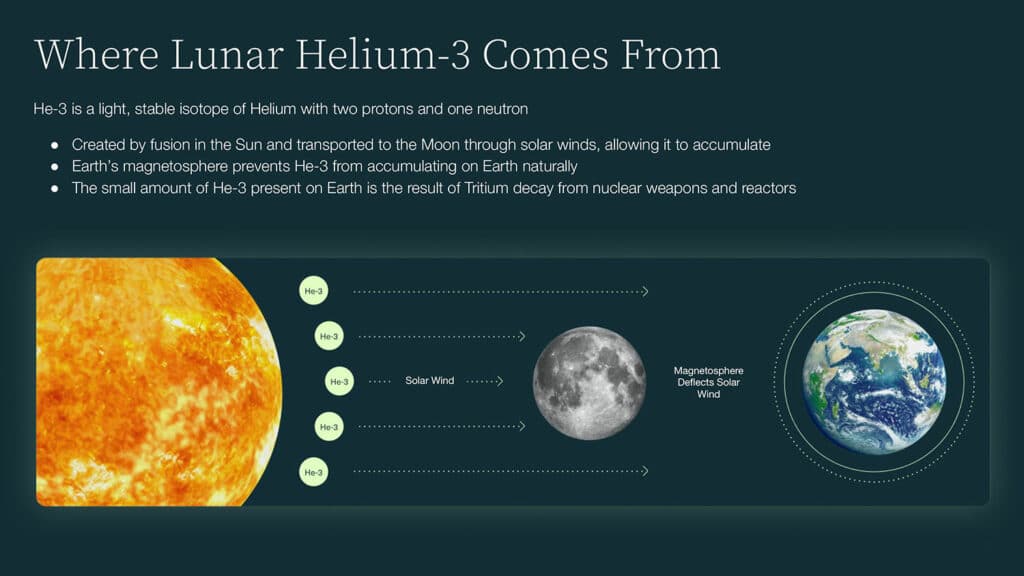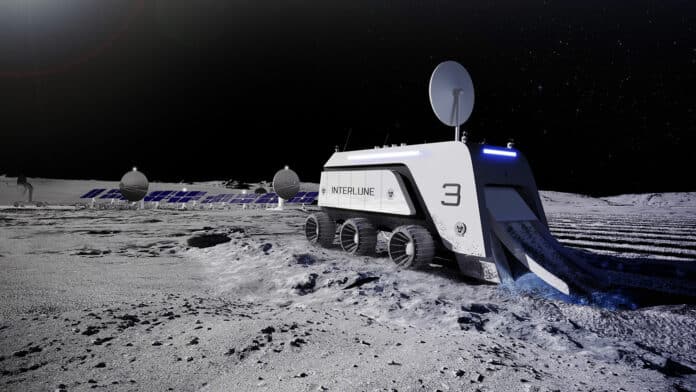Interlune, a natural resources company, has raised funding to further develop and operationalize technology to extract Helium-3 and other natural resources from the Moon. It aims to be the first private company to commercialize natural resources from space.
Interlune was founded by Apollo-17 crew member Harrison Schmitt and former Blue Origin president Rob Meyerson. The company is working towards the sustainable, responsible harvesting and distribution of natural resources from space to benefit humanity.
Alexis Ohanian’s venture firm, Seven Seven Six, led Interlune’s latest funding round of $15 million, adding to previous angel investments. Other investors who contributed to the funding round include Aurelia Foundry Fund, Gaingels, Liquid 2 Ventures, Shasta Ventures, and a group of committed University of Michigan alumni.
Interlune’s primary objective is to extract and transport lunar Helium-3 to Earth for use by commercial and government customers in various markets, including national security, quantum computing, medical imaging, and fusion energy.
Helium-3 – a helium isotope created by the sun through the process of fusion – is rare on Earth but plentiful on the Moon, making it an attractive source of energy. The scarcity of Helium-3 on Earth has led the government and industry to search for new and scalable sources, with Interlune aiming to fill this gap.
“There is a growing demand for Helium-3 across burgeoning and potentially massive industries,” said Ohanian. “We invested in Interlune because access to the ample cache of Helium-3 and other precious natural resources on the Moon and beyond will unlock or accelerate technological advancements currently hindered by lack of supply.”
In time, Interlune will harvest other resources such as industrial metals, rare Earth elements, and water to support a long-term presence on the Moon and a robust in-space economy.

The company’s core intellectual property includes novel technologies for excavating and processing industrial quantities of lunar soil, or regolith, to extract Helium-3 and other resources. Its lunar harvester is more efficient and less expensive to transport and operate than other industry concepts.
Interlune plans to validate resource concentrations with its first robotic lander mission, which will be fully designed once it receives the investment.
“For the first time in history, harvesting natural resources from the Moon is technologically and economically feasible,” said Meyerson. “With our uniquely experienced and qualified team, Interlune is creating the core technologies to extract and process lunar resources responsibly to serve a wide range of customers.”
In October 2023, Interlune received a National Science Foundation (NSF) Small Business Innovation Research (SBIR) Phase I award to operationalize technology to size and sort lunar regolith. This award will fund prototype testing on Earth under simulated lunar conditions, and future phases will support full-scale development and demonstration on the Moon.
